What Natural Preservatives Can I Use in Skincare and Lotions?
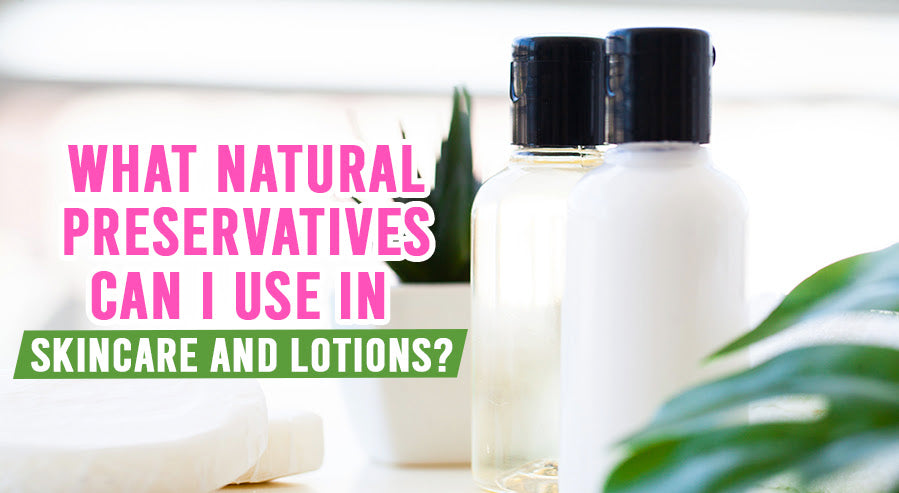
Preservatives hold off the surprise invasion of bacteria and mold from your skincare stash. Let's talk about what keeps our skincare in top form. The goal is natural preservatives - swapping out the old chemicals for natural preservatives, driven by our love for skin and planet alike.
Honestly, who wouldn't jump at skincare that's as kind to your face as it is to the Earth?
We'll cover everything you need to know about natural skincare preservatives, from well-loved options to lesser-known options eager to keep our skincare schedule both effective and eco-friendly. The goal is finding that sweet spot where nature meets science, which makes the perfect blend for skincare that's both savvy and sustainable.
What Are Natural Preservatives?
I whip up lotions and skincare treats with a little something special - natural preservatives. What's awesome about these is that they're sourced from nature, hardly touched, and just so much better for you and the planet. They keep your beauty essentials fresh for longer, minus the nasty effects usually tagged with man-made ingredients.
Let's talk about Vitamin E for a second. It's a champion at prolonging your products' life by battling oxidative damage. Oh, and Rosemary Oleoresin Extract? It's loaded with useful compounds like carnosic and rosmarinic acids that fight off microbes and fungi like nobody's business.

Then there's Potassium Sorbate, an option derived from the essence of fruits, which excels in collaboration with others to fend off spoilage. And do not forget sodium benzoate, which is born from the benzoic acid in fruits, which teams up nicely to keep your cosmetics fresh. Check out Benzyl Alcohol as well, sourced from the heavenly aromas of jasmine and ylang-ylang, which are really important oils; they are an important factor in stopping unwelcome microorganisms in their tracks.
Adding these natural preservatives both elevate the quality and safety of the skincare creations I make; it's also a tribute towards loving our planet a bit more. Here's to making beauty that cares for you and the Earth.
How to Choose the Right Preservative for Your Skincare Products
Picking the perfect natural preservative for your skincare products is important. You want something that keeps your creation fresh and effective. The goal is to get the science and practicalities right.
Let's kick off with understanding your product's pH level. Knowing this is important because some natural preservatives work best at certain pH levels. To give you an example, if your lotion has a pH of 5, you'll need a preservative that works well in that zone. This insight makes picking the right one easier.
Think about how your preservative will get along with your other ingredients. It's important that it doesn't mess with your product's scent, color, or feel. Everything needs to blend consistently.
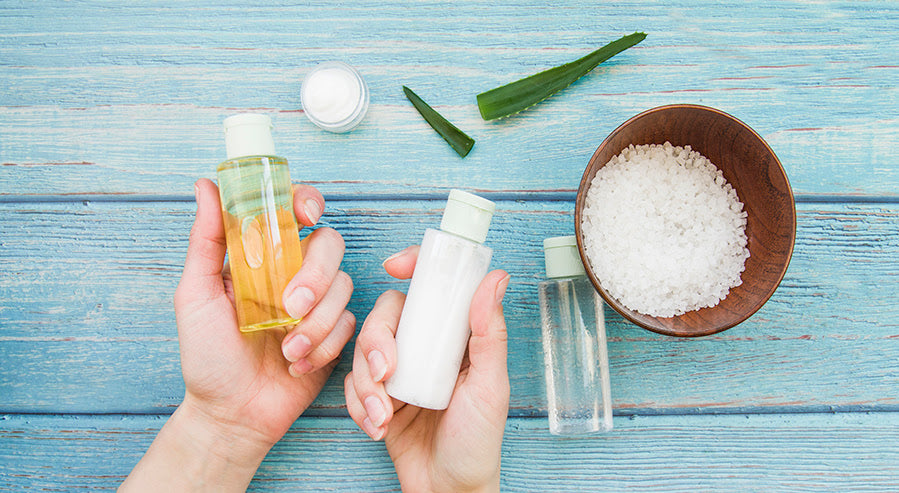
Your preservative needs to be a strong defender against bacteria, molds, and yeasts. Ingredients like Benzyl Alcohol, Salicylic Acid, Glycerin, and Sorbic Acid, found in options like Geogard ECT, are champs at this. We'll talk about those in a second.
Also, it depends on your recipe. If you're mixing up an anhydrous (water-free) product, you might skip the preservative, unless water contact is likely during use.
Introducing challenge tests. These are important as they show if your preservative can protect your product under typical use conditions. This gives you a sneak look at how well your preservative holds up over time.
And remember expert advice. Talking with the pros of joining groups focused on organic skincare can offer new tips and strategies. Though it might seem like a deep dive, this step is important to make sure your skincare products are safe and of the highest quality.
What Is Benzyl Alcohol?
Benzyl alcohol is an option for anyone looking to keep their skincare fresh without resorting to harsh chemicals. Found naturally in aromatic plants and really important oils like jasmine and ylang-ylang, it has a safe and natural way to maintain the pristine condition of your lotions and skincare products.
I'm a big fan of benzyl alcohol for its ability to fend off the likes of bacteria, fungi, and yeast, which makes sure your skincare retains its natural goodness. Another bonus? It's usually safe for use and might even leave a subtle, appealing fragrance in your collection.

But it's not perfect. For some, the scent might be overpowering, not exactly what they're looking for.
And, although rare, allergic reactions to benzyl alcohol can happen. A quick patch test or a conversation with your favorite dermatologist can help steer clear of any issues.
In the grand scheme of things, benzyl alcohol stands out as an excellent natural preservative choice. It shields your skincare go-to's while usually being kind to your skin and possibly improving the scent. Just keep tabs on how your skin reacts to it.
What Is Salicylic Acid?
Salicylic acid is a bit of a skincare secret weapon. It's a natural find, coming straight from willow bark, and it keeps skincare products fresh and fights off the bad things, too. Why is it a favorite for glowing skin, you ask? Well, it's fantastic at kicking dead skin cells to the curb, brightening and smoothing out your skin like an expert.
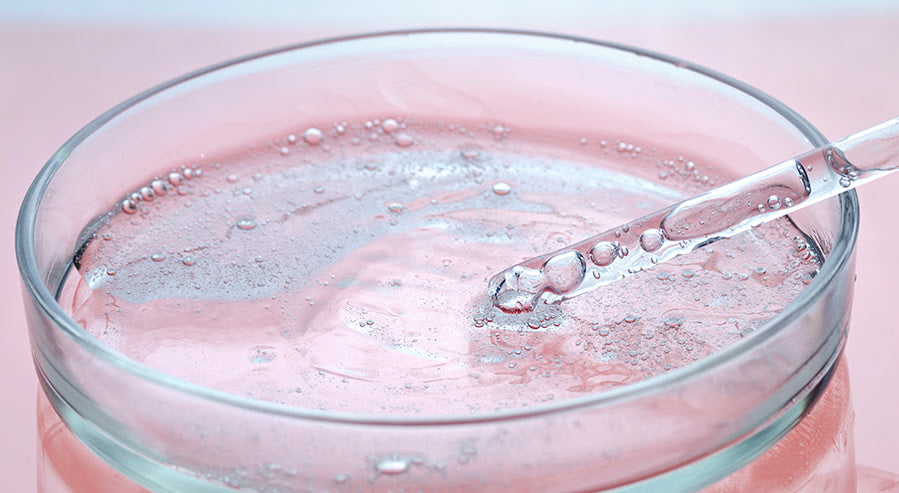
This powerhouse doesn't stop there. It's an exfoliation champion, helping your skin shed the old and welcome the new, leaving you looking fresher than ever. If you've battled with skin that seems dull or rough, salicylic acid might just be the help you've been searching for. Plus, it's a ninja when it comes to relaxing redness and smoothing out acne-prone skin, which makes sure those pesky pores don't get clogged up and cause breakouts.
And - salicylic acid doesn't stop at acne. Got bumps, warts, tough skin places, or even dandruff that's driving you nuts? This ingredient has got you covered. But, here's the thing - it's powerful. So, for the little ones under 3 in the EU, it's best to steer clear and follow the guidelines that are in place for a reason. Even though this is true, the benefits of salicylic acid for keeping your skin in check are pretty hard to ignore.
What is Sorbic Acid and Rosemary Oil Extract?
Sorbic acid and rosemary oil extract are both powerful choices for natural preservatives. How do you use them, though?
First up, sorbic acid. This secret weapon comes straight from rowan tree berries and is a beast at keeping mold, yeast, and fungi at a distance. Best in the ring with products on the acidic side (think pH less than 5.5). So, whenever I'm mixing up a new batch of cream or lotion, I'm all about making sure the pH levels are in the sorbic acid sweet spot.
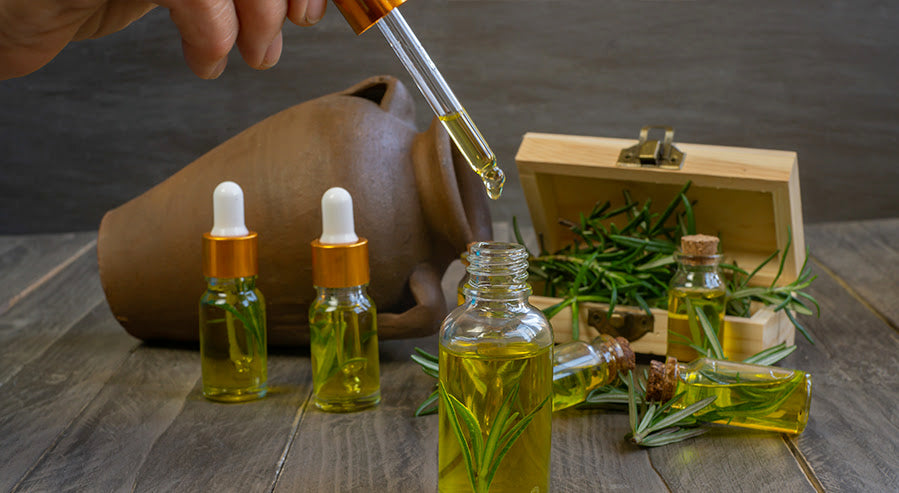
Onto rosemary oil extract. This guy's packed with antioxidant and antimicrobial goodness. Talking about a shield against the daily beatdown from pollution and UV rays, with a bonus round for those battling acne. And that smell? Pure spa atmospheres. But, heads up, its strong scent isn't everyone's cup of tea. I always play around with the amount to make sure it's hitting the right notes with the product's overall smell.
Using naturals like these means we're on our way to safer, shelf-stable skincare goodness. Everyone's buzzing about clean beauty, and sorbic acid and rosemary oil extract are how we're answering the call. Each brings its own style to the table, so the goal is to see how they fit with what you're cooking up. My formulating adventures have taught me it's important to get how these ingredients tone together.
Honorable Mention #1: Grapefruit Seed Extract and Vitamin E
Grapefruit seed extract (GSE) and vitamin E aren't just your typical ingredients for skincare and lotions; they're natural benefits that help our products last longer while making our skin look and feel healthier. GSE is a big deal for those of us mixing up our own skincare drinks at home or in pro settings because it's a champ at knocking out bacteria and fungi. But, not all GSEs are created equal. Sometimes, what boosts its power isn't all-natural after all; it comes from added synthetic things. So, picking high-quality, transparently processed GSEs is important to really tap into their goodness.

On to vitamin E, or as the science people call it, tocopherol. This guy is all about fighting off the bad guys - think free radicals - and helping our skin bounce back from damage. Plus, it shields us from the sun's harsh atmosphere, which is really important for any skincare product worth its salt. But here's the thing: vitamin E shouldn't fly solo. It shines brightest when teamed up with other preservatives, preventing our favorite creams from going bad or getting all funky.
The bottom line? Embracing natural preservatives like vitamin E in our skincare regimes means we're both slapping on some product. We're giving our skin a natural improvement, keeping things fresh without losing out on effectiveness. The goal is to blend the best of nature into our skincare schedule.
Honorable Mention #2: Potassium Sorbate and Sodium Benzoate
When we talk about the space of keeping skincare products safe, there are some heroes worth talking about - Potassium Sorbate and Sodium Benzoate. These two might not get as much spotlight as other preservatives out there, but they're absolutely important to make sure our favorite creams and lotions stay in great shape, free from unwanted bacteria, yeast, and mold.
Let's get a bit into the science without getting too science-y. Potassium Sorbate comes from sorbic acid, which is found in berries. Sodium Benzoate? It's from benzoic acid, found in a bunch of fruits and spices. Together, these two are a unique combination against microbes, keeping a large number of skincare goodies protected from any microbial sneak attacks.

One cool thing about using Potassium Sorbate and Sodium Benzoate is that they play well with all sorts of skincare products - from your lush creams to those silky lotions, without messing up how the product feels on your skin. The catch is that they do their best work in environments with a pH of 5.5 or lower, which just so happens to match your skin's natural pH. This means they're both keeping the product safe; they're being mindful of your skin, too.
If you're thinking about adding these preservatives to your skincare line, there's a bit of a curveball. You have to keep an eye on the product's pH to make sure these preservatives can do their job right. It might sound difficult, but with a little practice and maybe a useful pH meter, it's definitely something you can get the hang of. This way, you're making sure these products stay gentle on the skin and effective in fighting off the microbe mob.
And for those of you wondering about keeping things natural, even though Potassium Sorbate and Sodium Benzoate are made in a lab, they can still fit snugly into a clean beauty schedule. They barely leave a trace on the product's natural feel, and when teamed up with other natural preservation methods, they help keep your skincare fresh and safe, all while staying on friendly terms with Mother Nature.
Finding The Perfect Blend
Creating the perfect blend for your skincare products is all about finding the sweet spot between the wonders of science and the goodness of nature, not to mention sweating the small things. It's super important that the preservative fits your product like a glove, mixing consistently with other ingredients and sticking to safe usage levels. Getting this right means your skincare goodies will be both safe and very effective, helping people to shine in their natural beauty and health.
Let's talk about something super important: microbiological challenge tests. This step is incredible - it makes sure your preservative system is tough enough to fight off the nasties and keep your skincare treasures safe and sound for the long haul. It might sound a bit scary, but the peace of mind it brings, knowing your goods are covered, is a total win.
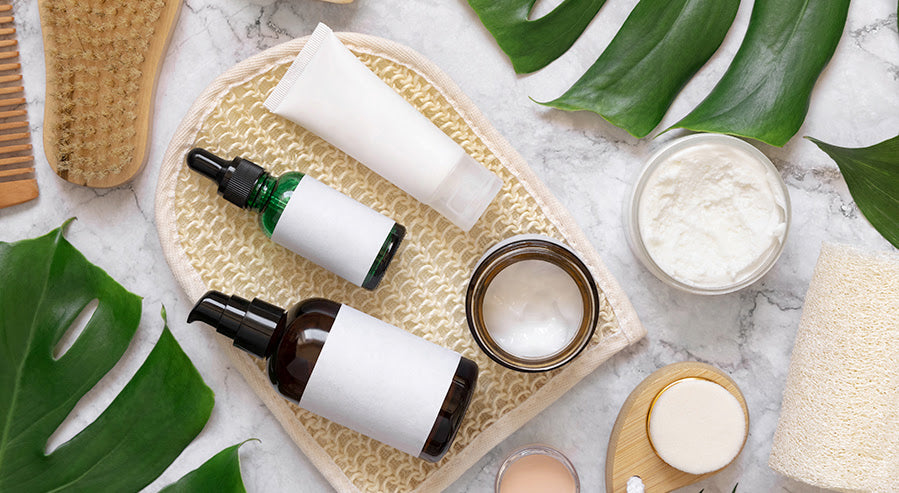
Picking the right natural preservatives is something you have to take to heart. I'm talking about making your things last longer on the shelf, caring for your customer's safety, and showing them you're all-in on quality.
Here at Teami, we understand how important these steps are. Our teas and skin care products are living proof of our commitment to health, pep, and embracing natural beauty. We're inviting you on a little adventure to our store to look at choices that are all about boosting your health and wellness tone. Check out our store today!
Subscribe to our Newsletter
Subscribe to our newsletter and get 10% off your first purchase
 Instagram
Instagram



